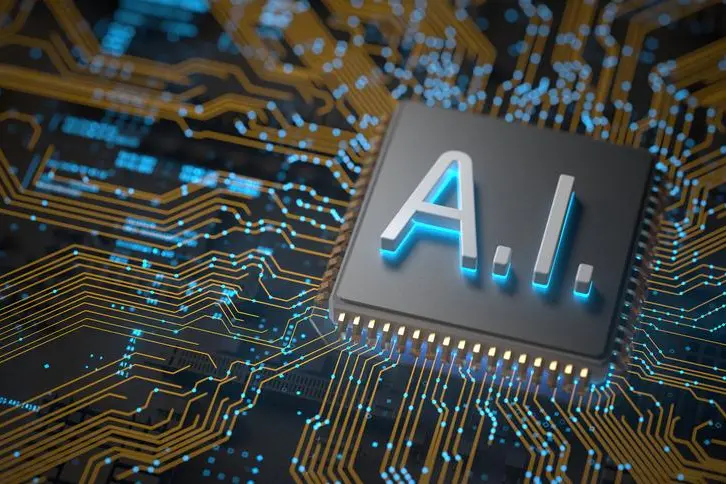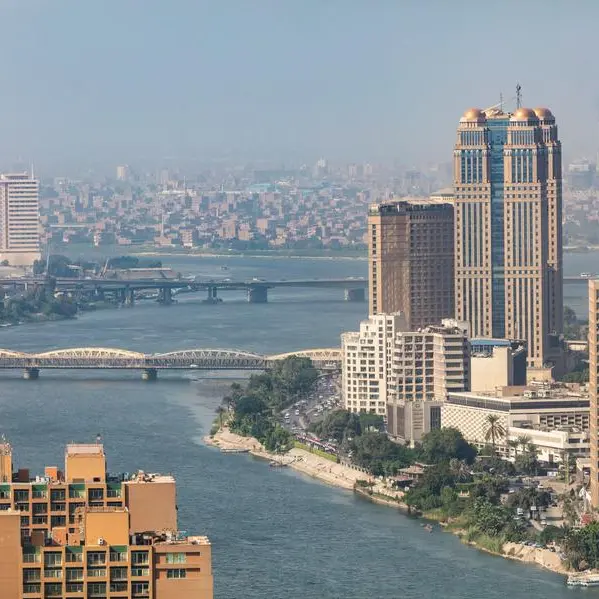PHOTO
Research in artificial intelligence (AI) and robotics is helping accelerate growth and sustainable transformation in key sectors like energy, agriculture and aviation, said a top subject expert in Abu Dhabi.
In August 2023, the Mohamed Bin Zayed University of Artificial Intelligence (MBZUAI) launched two departments dedicated to robotics and computer science to nurture the next generation of AI and robotics leaders. Since then, AI researchers and students have been creating a positive impact and playing a key role in advancing some of the major growth sectors.
“The MBZUAI’s focus is on the computer science side of robotics rather than the hardware side. Our research is developing the ‘brain side’ of the robot to enhance perception, navigation, motion planning, and control,” noted Dezhen Song, who joined the university as its inaugural professor of robotics.
“If you have AI capability, you need a robot to really be able to interact with or influence the physical world to make specific things happen,” said Song, whose prior research has focused on robot spatial intelligence or retrieving spatial information from multimodal sensory data and making decisions based on it. He holds a PhD in operations research from the University of California, Berkeley.
Automated asset inspection
Describing the new department as “a capability amplifier for this entire university”, Song outlined the specific applied research that can make a significant contribution to the UAE.
“Given that the UAE plays a major role in the energy industry, AI research in robotics enables the automated inspection of infrastructure, from a pipeline and equipment safety perspective to delivering a range of monitoring diagnoses.”
With the UAE’s move toward more sustainable energy sources, Song maintains that AI research can be used to develop and maintain larger solar or wind farms, with robots used to inspect and maintain infrastructure.
Precision agriculture
Song underlined that food security is another vital area around sustainability in which the university’s robotics research can deliver tangible results.
Coming from an agricultural research background in his former role at Texas A&M University, Song noted how AI studies are helping create more efficient farming practices.
“AI in agriculture ranges from field surveys of land for farming through to counting yield estimation or how many crops will likely be delivered in a specific season. Using robots to traverse fields for these surveys is a far less labour-intensive process, and more cost-effective.”
AI research enables food producers to use robotics sensors to detect the quality of their crops, from which location provides the best produce to the preferred time for picking and harvesting, by creating and analysing data on the ripeness of produce, including watermelons, tomatoes, and potatoes.
For more sustainable farming practices, AI-enabled robots are trained in the precision removal of weeds and to prevent mass spraying of pesticides.
“The robot can traverse the field with a small flame thrower to kill the weeds – a precise burning that reduces the use of chemicals,” Song explained.
The MBZUAI recently signed a memorandum of understanding (MoU) with Silal, which supports the National Strategy for Food Security 2051, aimed towards developing a comprehensive national system to enable sustainable food production using modern technologies and enhance local production.
Similar to what happens in a warehousing fulfilment centre, AI-enabled robots can transport agricultural products between fields and depots, interacting with the people managing the farm.
“This kind of robot-human collaboration can really make an immediate impact because it doesn't really need a lot of investment or additional research, but still gradually increases efficiency and reduces labour costs,” the professor added.
Making aviation safer
Song pointed out that the university is studying how to make airlines safer.
Last year, MBZUAI and Etihad Airways inked an agreement to develop AI outcomes that will enhance the aviation sector.
“In perception-focused robotics research, we have numerous areas for infrastructure inspection, including new airplane surfaces made of carbon fibre and composite materials. Using sensors, we can create a mechanical vibration that detects subsurface cracks in airplane exteriors which are otherwise invisible during safety inspections.”
He explained that AI-enabled micro laser beams are sent into the airplane exterior, generating a sound wave that is bounced back and highlighting areas for further safety inspection.
“This sort of AI research in aviation shows the alignment of the different areas of research that MBZUAI has within its university departments – if we do spectrum analysis learning while analysing patterns with machine learning methods, and the whole process is enabled by robotics, we are able to find previously undetected issues and predict how they may develop in the future.”
Increasing MBZUAI’s academic programmes from three to five with the addition of robotics and computer science has seen an increase in eligible master’s and PhD applicants from across the globe.
Applications are open until March 31 for expatriates and UAE residents, and May 31, 2024, for UAE nationals. Visit https://mbzuai.ac.ae/ for further details.
Copyright © 2022 Khaleej Times. All Rights Reserved. Provided by SyndiGate Media Inc. (Syndigate.info).





















